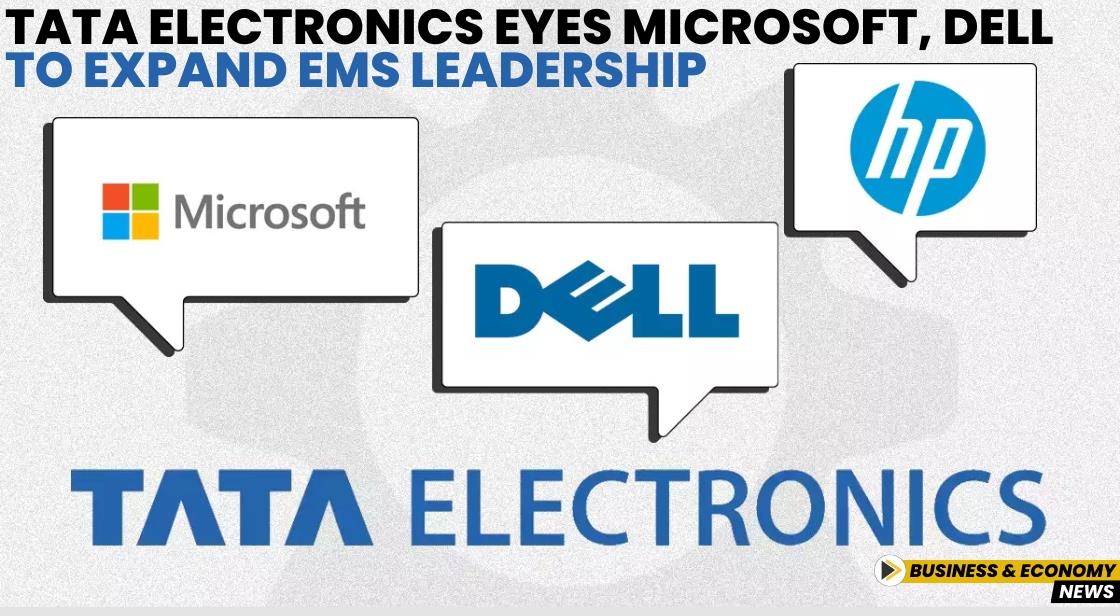Tata Electronics Eyes Microsoft, Dell to Expand EMS Leadership

News Synopsis
Tata Electronics, a prominent player in India’s electronics manufacturing services (EMS) sector, is making strategic moves to diversify its client base. The company is in advanced discussions with global tech giants such as Microsoft, Dell, and HP as it positions itself as a major force in the EMS market.
According to a report, Tata aims to replicate the success of Taiwan’s Foxconn, focusing on high-volume contracts and vertical integration.
Tata Electronics' Strategic Client Diversification
Moving Beyond Apple
Currently known for assembling Apple iPhones, Tata Electronics is expanding its focus to other global tech leaders. Serving Apple has drawn attention from industry giants, leading to discussions for assembly and component supply agreements. However, Tata prefers high-volume contracts, as highlighted by industry insiders.
This diversification aligns with Tata’s global ambitions and aims to reduce dependence on a single client. Prabhu Ram, V-P at Cybermedia Research, remarked:
“Tata’s pivot from being an Apple-centric supplier to a broader EMS provider underscores its global ambitions. Engaging with top-tier clients not only diversifies Tata’s revenue streams but also enables it to scale operations and replicate Foxconn’s model.”
Tata's Unique Vertical Integration
Advantages for Global Clients
Tata Electronics offers unique benefits through its vertical integration model, leveraging group expertise in software, chip design, and retail. Unlike Foxconn’s factory-focused approach, this integration allows Tata to explore opportunities in original design manufacturing (ODM) for products like PCs, wearables, and IoT devices.
Neil Shah, Research V-P at Counterpoint Research, explained:
“Tata’s unique advantage is its vertical integration. Unlike Foxconn’s factory-focused model, Tata leverages its group capabilities across software, chip design, and retail.”
Supporting Global Supply Chain Diversification
For companies like Microsoft, Dell, and HP, Tata provides a strategic alternative to reduce single-source dependencies. Ekta Mittal, Senior Analyst at CCS Insights, stated:
“The Covid-19 pandemic underscored the importance of controlling supply chains, especially for critical components. As companies like Dell shift production away from China, collaboration with Indian manufacturers aligns with global supply chain diversification trends.”
Exploring High-Growth Sectors
Aiming for the Semiconductor Market
Tata Electronics is exploring high-growth areas like semiconductors and sub-components to establish itself as a key player in advanced manufacturing. Mittal emphasized that forming partnerships with major global players is vital for Tata’s long-term success.
Challenges and Opportunities
Recovering Post-Fire Incident
A fire incident at one of Tata’s factories temporarily slowed scaling efforts. However, the company remains resilient, using the event as an opportunity to strengthen operational safety and accelerate diversification plans.
Conclusion
Tata Electronics is making bold moves to solidify its position as a global EMS leader, leveraging India’s growing reputation as a reliable manufacturing hub. By targeting industry giants such as Microsoft, Dell, and HP, and pursuing opportunities in high-growth areas like semiconductors, Tata aims to transcend its role as an Apple-centric supplier.
The company’s commitment to vertical integration and its focus on diversifying revenue streams position it as a transformative force in global supply chains.
As the company continues to explore ODM opportunities and strengthen its manufacturing capabilities, Tata Electronics underscores India’s potential to rival established players like Foxconn.
If successful, these strategies will not only enhance Tata's market presence but also contribute to India’s ambition of becoming a key player in global technology manufacturing.
You May Like









